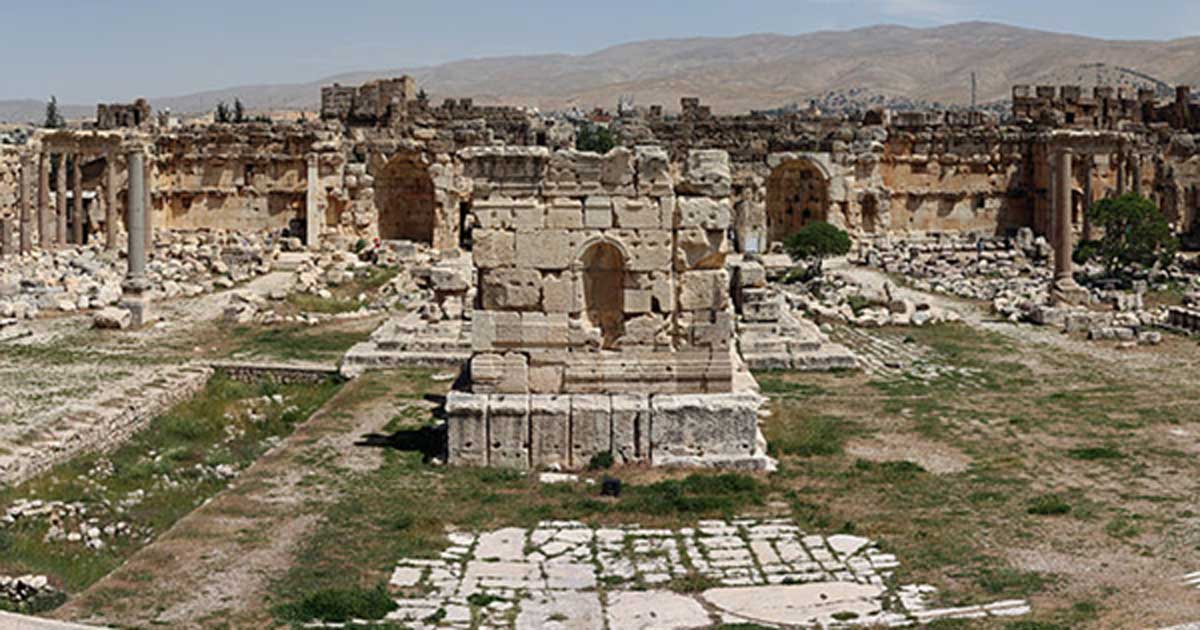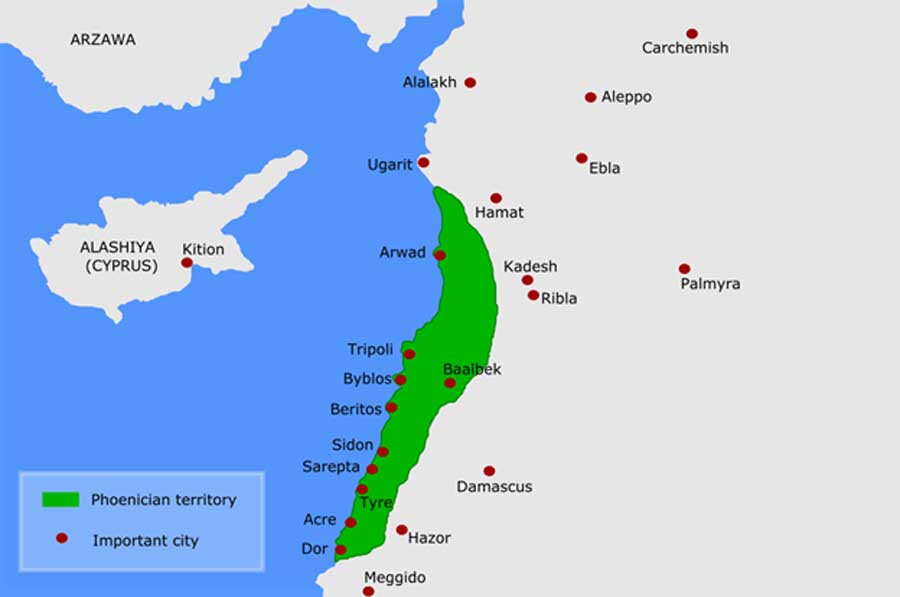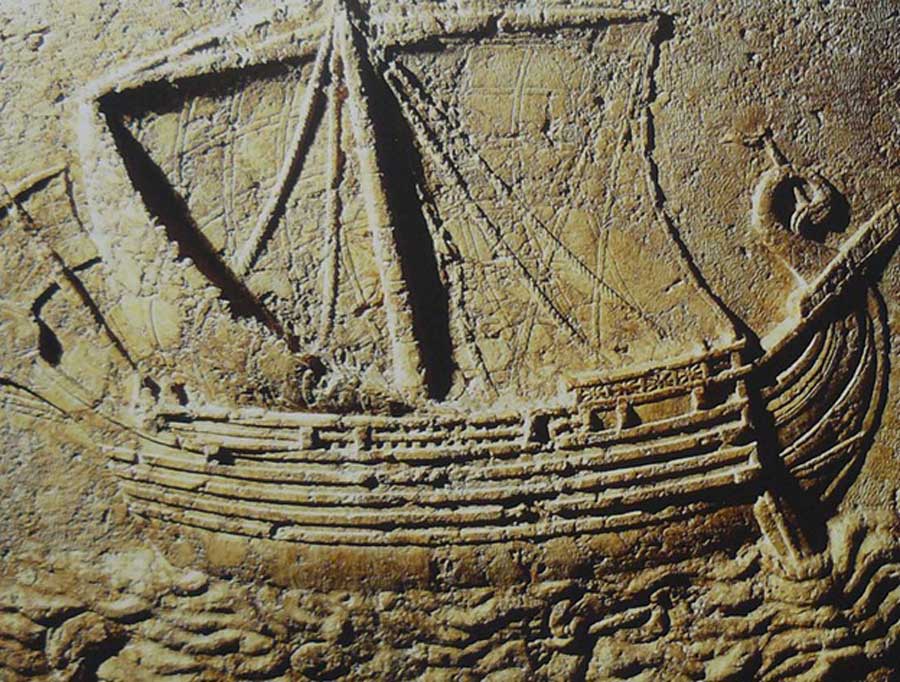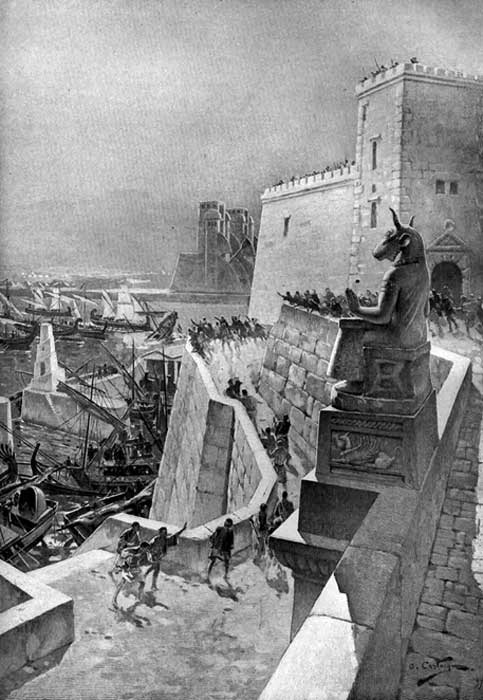
Finding Canaan: Ancient Roots of the Lost Phoenician Civilization
Of all the seafaring civilizations who, to our knowledge, first explored the vast oceans, none are more mysterious than the ancient Phoenicians. How far did their voyages take them? What lands did they discover and explore? How did they navigate? What forgotten influence did they have upon the history of the world? And most importantly, where did they come from?

Map of Phoenicia- late Bronze Age (CC BY-SA 3.0)
In the early texts of the Bible they are called Canaanites, although there is a subtle difference between the two terms. Phoenicia generally refers to what is now called Lebanon. Canaan is a broader term that included present day Israel, Syria and Jordan. But they were collectively a Semitic people and it was their written language that was the basis for first the Greek and then the Roman alphabet from which the English language is derived.

Phoenician ship carved on the face of a sarcophagus. 2nd century AD (Elie Plus/ CC BY-SA 3.0)
It must have been quite a sight to see the Phoenician great ships, decked out with carved images of horse's heads in honor of Yamm, their god of the sea, when they hove into view, bringing the promise of trade from exotic lands. Especially prized were purple robes from Tyre, coveted initially by Mesopotamian royalty and later by Roman aristocrats. Tyre, and its sister city, Sidon, were famous for their exports and trade systems. Byblos, which was to gain fame in the Egyptian myth of Osiris, and Baalbek, named after the god Baal, who was later so despised by the Hebrew prophets, were the most important religious centers of the Canaanite civilization.

A naval action during the siege of Tyre in 332 BC by André Castaigne, (1888- 1889) (Public Domain)
Canaan, Descendant of Noah
Canaan, the man who is the presumed founder of the Canaanites, was reportedly the son of Ham and the grandson of the patriarch Noah. His story is told in Genesis 9:20-27. After the flood waters had retreated: “Noah, a man of the soil, proceeded to plant a vineyard. When he drank some of its wine, he became drunk and lay uncovered inside his tent. Ham, the father of Canaan, saw his father naked and told his two brothers outside. But Shem and Japheth took a garment and laid it across their shoulders; then they walked in backward and covered their father’s naked body. Their faces were turned the other way so that they would not see their father naked. When Noah awoke from his wine and found out what his youngest son had done to him, he said, "Cursed be Canaan! The lowest of slaves will he be to his brothers."




